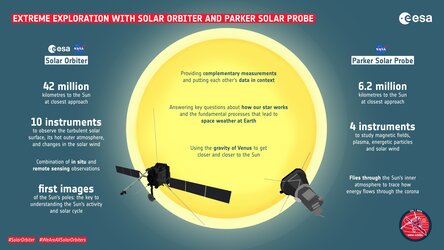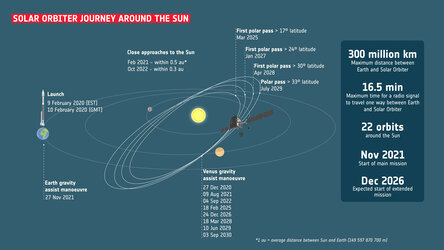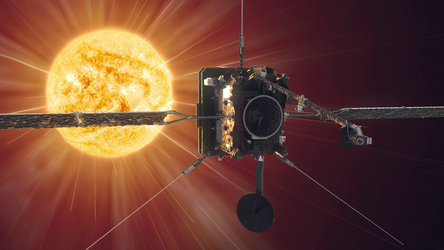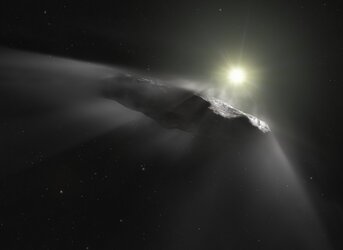Accept all cookies Accept only essential cookies See our Cookie Notice

About ESA
The European Space Agency (ESA) is Europe’s gateway to space. Its mission is to shape the development of Europe’s space capability and ensure that investment in space continues to deliver benefits to the citizens of Europe and the world.
Highlights
ESA - United space in Europe
This is ESA ESA facts Member States & Cooperating States Funding Director General Top management For Member State Delegations European vision European Space Policy ESA & EU Space Councils Responsibility & Sustainability Annual Report Calendar of meetings Corporate newsEstablishments & sites
ESA Headquarters ESA ESTEC ESA ESOC ESA ESRIN ESA EAC ESA ESAC Europe's Spaceport ESA ESEC ESA ECSAT Brussels Office Washington OfficeWorking with ESA
Business with ESA ESA Commercialisation Gateway Law at ESA Careers Cyber resilience at ESA IT at ESA Newsroom Partnerships Merchandising Licence Education Open Space Innovation Platform Integrity and Reporting Administrative Tribunal Health and SafetyMore about ESA
History ESA Historical Archives Exhibitions Publications Art & Culture ESA Merchandise Kids Diversity ESA Brand Centre ESA ChampionsLatest
Space in Member States
Find out more about space activities in our 23 Member States, and understand how ESA works together with their national agencies, institutions and organisations.
Science & Exploration
Exploring our Solar System and unlocking the secrets of the Universe
Go to topicAstronauts
Missions
Juice Euclid Webb Solar Orbiter BepiColombo Gaia ExoMars Cheops Exoplanet missions More missionsActivities
International Space Station Orion service module Gateway Concordia Caves & Pangaea BenefitsLatest
Space Safety
Protecting life and infrastructure on Earth and in orbit
Go to topicAsteroids
Asteroids and Planetary Defence Asteroid danger explained Flyeye telescope: asteroid detection Hera mission: asteroid deflection Near-Earth Object Coordination CentreSpace junk
About space debris Space debris by the numbers Space Environment Report In space refuelling, refurbishing and removingSafety from space
Clean Space ecodesign Zero Debris Technologies Space for Earth Supporting Sustainable DevelopmentLatest
Applications
Using space to benefit citizens and meet future challenges on Earth
Go to topicObserving the Earth
Observing the Earth Future EO Copernicus Meteorology Space for our climate Satellite missionsCommercialisation
ESA Commercialisation Gateway Open Space Innovation Platform Business Incubation ESA Space SolutionsLatest
Enabling & Support
Making space accessible and developing the technologies for the future
Go to topicBuilding missions
Space Engineering and Technology Test centre Laboratories Concurrent Design Facility Preparing for the future Shaping the Future Discovery and Preparation Advanced Concepts TeamSpace transportation
Space Transportation Ariane Vega Space Rider Future space transportation Boost! Europe's Spaceport Launches from Europe's Spaceport from 2012Latest
Solar Orbiter’s first close encounter
Thank you for liking
You have already liked this page, you can only like it once!
On 26 March and enduring temperatures of some 500 degrees Celsius from within the orbit of planet Mercury, Solar Orbiter returned spectacular imagery of the Sun during its first close encounter with our home star. Detailed new movies show activity in the solar atmosphere and reveal a variety of features, including something scientists are nicknaming ‘the hedgehog’ with spikes of hot gas reaching out in all directions.
Solar Orbiter’s ten science instruments are now all working together for the first time. Some are looking at the Sun while others are simultaneously measuring the environment around the spacecraft, enabling scientists to join the dots from what they see happening at the Sun, to what Solar Orbiter ‘feels’ at its location in the solar wind millions of kilometres away. In the weeks around the close approach Solar Orbiter also observed several flares and even a coronal mass ejection, providing a taste of space weather forecasting at Earth.
Scientists across Europe – and ESA’s partners around the world – are now working to interpret the vast amount of information Solar Orbiter is sending back that promises to transform our understanding of our nearest star.
Solar Orbiter is a space mission of international collaboration between ESA and NASA.
This report includes interviews with:
- David Berghmans, EUI Principal Investigator
- Daniel Müller, Solar Orbiter Project Scientist, ESA
- Anik De Groof, Instrument Operations Scientist, ESA
-
CREDIT
ESA -
LICENCE
ESA Standard Licence
-
TV Exchanges
-

Solar Orbiter: first close encounter

Extreme exploration with Solar Orbiter and Parker So…

Solar Orbiter: journey around the Sun

Solar Orbiter’s first close approach to the Sun















 Germany
Germany
 Austria
Austria
 Belgium
Belgium
 Denmark
Denmark
 Spain
Spain
 Estonia
Estonia
 Finland
Finland
 France
France
 Greece
Greece
 Hungary
Hungary
 Ireland
Ireland
 Italy
Italy
 Luxembourg
Luxembourg
 Norway
Norway
 The Netherlands
The Netherlands
 Poland
Poland
 Portugal
Portugal
 Czechia
Czechia
 Romania
Romania
 United Kingdom
United Kingdom
 Slovenia
Slovenia
 Sweden
Sweden
 Switzerland
Switzerland

























